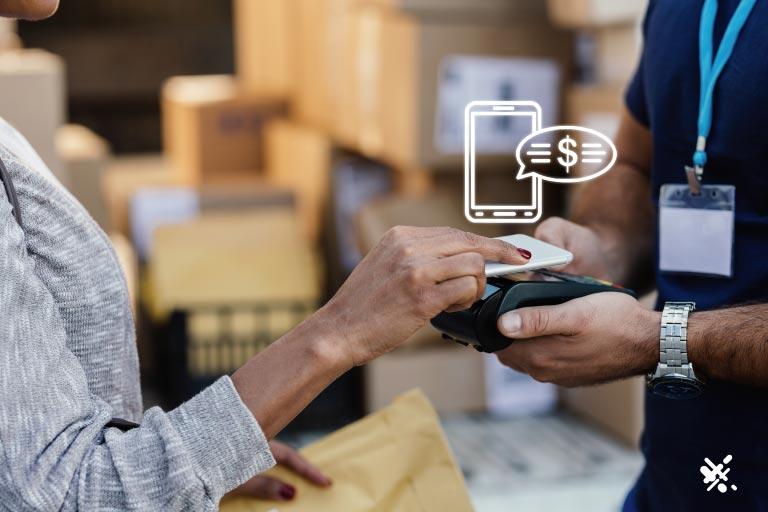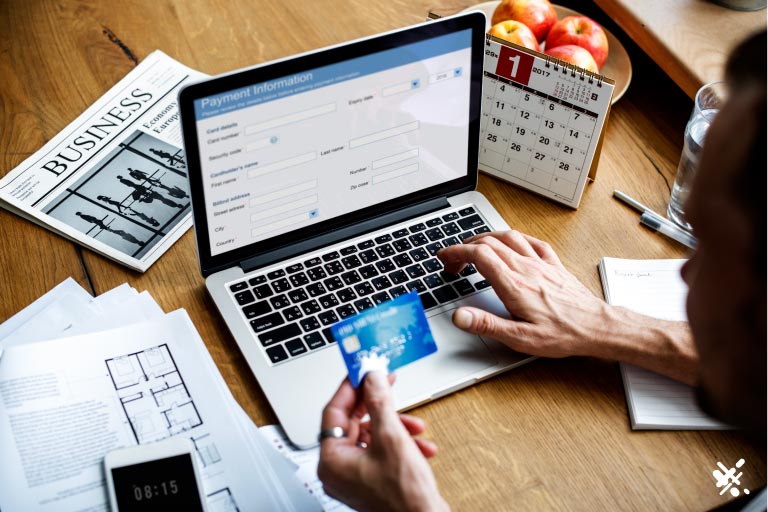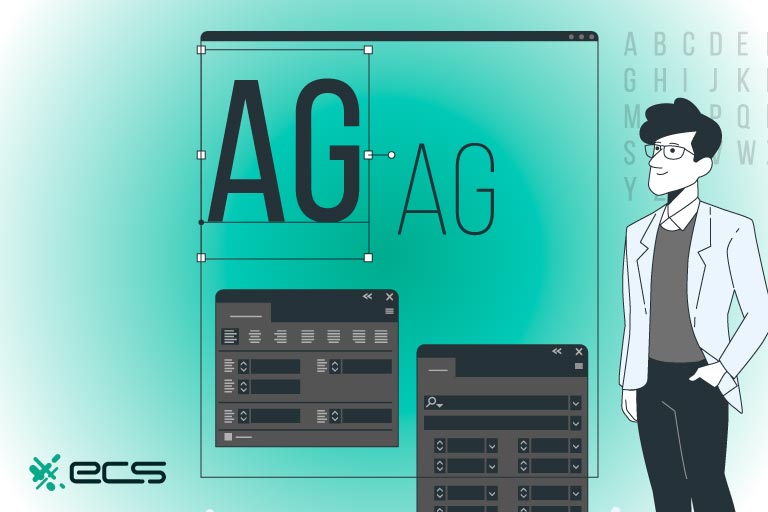Being able to process digital payments efficiently is critical to virtually every business. While most businesses understand the basics of payment processing, they may not realize that business-to-business (B2B) payments can have different requirements than standard retail payment processing.
Many businesses may also have a mix of retail or business-to-consumer (B2C) payments and B2B payment needs.
This article will explain B2B payments and how they can impact your business. We’ll also explain how to leverage B2B payment solutions for faster payments and increased overall collections efficiency.
What are B2B Payments?
B2B or business-to-business payments are payments between two businesses. Normally, when people think of payments, they usually think of retail customers paying a company for goods or services (B2C).
B2B payments are strictly between businesses and can involve payment for products or services such as manufacturing equipment, raw materials, or services needed for production. B2B payments can also involve international payments depending on the type of business and industry.

What Makes B2B Payment Processing Different From B2C?
It may seem like all payments are the same, but B2B payments have distinct differences from B2C, and it’s important to understand these differences to ensure your payment workflow is as efficient and cost-effective as possible.
Transaction Size
Generally, B2B payments will be larger than the typical retail B2C or person-to-business payments. This size difference can impact variables such as transaction fees and other payment processing fees for your B2B payment service.
Larger transaction sizes can also mean that the processing companies may view them as higher risk. Several factors determine the risk of electronic payment processing. Transaction size is one of these risks. Higher-risk transactions may have higher processing fees.
Not all payment processors can deal with certain high-risk B2B transactions. Because of this, it’s important to ensure your payment provider specializes in these B2B transactions.
Forms Of Payment For B2B
Most B2C payments made by customers to businesses will be credit or debit cards. B2B payments will also include these, but businesses use other electronic payments like Automatic Clearing House (ACH), eChecks, and Electronic Funds Transfers (ETF).
Most retail situations do not often use these other electronic payment forms. But for B2B, these may make up the bulk of your payments. These forms of payments require more robust features and integrations.
Recurring Payments
Another big difference between B2C and B2B payments is that many B2B payments are recurring, while most retail or B2C payments are one-time transactions.
This is generally an ongoing relationship when businesses buy goods and services from other businesses. For example, buying raw materials for production may require regular payments. The same goes for services such as IT consulting or marketing services.
This means it’s important for businesses to have the features needed built into their payment processing solutions that allow for recurring payments and specialized invoicing tools.

Flexibility
B2B customers generally want payment options and terms that are flexible. Offering this flexibility helps from a business standpoint to land more sales and convert more leads into paying customers.
Whether you use sales representatives or you offer a more self-service approach, like a website to find customers, your payment options and methods must be flexible enough to work with potential clients. The last thing you want is a strong lead to balk because you don’t offer the payment methods or flexibility they want.
How B2B Payments Work
Implementing your B2B payment solutions will involve a few different entities that must work together for your payment systems to work efficiently and give you the options you need to satisfy your customers.
Below, we’ll go over each component of business-to-business merchant services.
The Payment Processor
This will be your first point of contact for implementing B2B payments. A payment processor, also sometimes called the acquiring bank, is a service provider that provides merchant accounts and business-to-business payment solutions.
There are many different payment processors, and choosing the right one is the most important factor in whether or not your B2B payments work the way you need them to.
Reputable B2B payment companies should be familiar with B2B payments and knowledgeable about your industry. This helps them find the best fee structure and tools for your specific business.
B2B Merchant Account
Once you’ve chosen your payment processor, you’ll apply for a B2B merchant account through them. The application process is relatively simple and only takes a few days once you’ve submitted your basic business information.
This generally includes items like:
- Business name and entity registration details
- Financial information
- Bank verification
- Business or personal credit information

Payment Gateway
The payment gateway transmits and processes the credit card information or other electronic payments across networks. There are several different payment gateways, each with its own benefits and drawbacks.
The payment gateway handles all of the different payment methods and transaction flows, including credit cards, debit cards, ACH, and eChecks
A good payment processor can help you choose the right payment gateway for your B2B business.
The payment gateway is also how your existing business software and systems will interface with the payment networks, so it’s important to ensure compatibility with all your systems before choosing.
Card Networks
The card networks are the card companies such as Mastercard, Visa, and American Express. Despite accepting these cards for payments, you likely will have no interaction with these payment card companies other than your transactions moving through their network.
In some cases, all your support questions or technical assistance will be through your payment processor or your payment gateway.
Issuing Banks
Finally, there are the issuing banks. The issuing banks are the financial institutions that issue credit cards or bank accounts to your customers. These issuing banks are the last stop along the transaction flow. After the transaction is approved, the funds then move into your merchant account.
B2B Payment Methods And Tools
Below, we’ll go over the payment methods used for B2B payments and the different options you’ll want with each to ensure you have the most payment flexibility for your customers.
Credit Cards And Debit Cards
Credit and debit cards are still important for B2B transactions. However, many businesses often use other forms of payment. Still, whether you are a software as a service (SaaS) provider or a supplier of raw materials, you want to be able to accept credit and debit cards in every way possible.
A business like a SaaS provider will want extensive online payment features that revolve around recurring payments. They’ll also need the ability to adjust those payments on the fly. This helps with different pricing structures in SaaS billing, such as consumption-based or usage-based.
Your payment gateway will provide many of these needed features with its toolset.
Phone orders may also be important, even if you primarily take orders online, especially for B2B companies with a sales team working on leads and securing customers.
For phone orders, you’ll need a virtual terminal, which you get from your payment processor. A virtual terminal is similar to a physical card reader you may see at a retail location, but it’s software-based and can process cards when the cardholder is not present.
Salespeople and other staff can take orders or accept customer payments over the phone to ensure you can always close a deal or secure a customer.
Finally, while not as common in B2B settings, contactless payments and mobile payments are good options if you travel and need to accept payments on the go or when away from the office. You can do this on any mobile device and accept digital wallet secure payments like Apple Pay.
ACH
Paper checks are not very common anymore in retail or B2C transactions, but for B2B, they are still a very popular choice for making large payments.
However, paper checks are expensive to process and can also be slow when receiving the funds. ACH payments operate on the same network, the Automatic Clearing House network, but are fully electronic.
Using ACH for transferring money is popular for larger or recurring transactions typical in B2B situations. You can set up a debit that recurs automatically based on an agreed-upon interval. You can customize or change these amounts if your customer changes their order from one invoice to the next.
Because you will most likely need access to B2B money transfer options, ask about ACH payments or bank transfers when choosing a payment processor and merchant account. Make sure they offer a full set of tools and features around these methods if you’re looking to accept B2B payments.

eChecks
An eCheck is a type of ACH payment, and it’s important for B2B payment processing. Some of your B2B customers may still prefer to mail a paper check even though they could use an electronic ACH payment or transfer.
For those customers, you can convert the paper check into an eCheck for immediate processing over the ACH network. Technically speaking, the paper check converts into a “debit” ACH transaction.
Using this conversion when your customers send paper checks can help you receive faster payment. There are also generally lower fees when processing eChecks than paper checks.
However, keep in mind that the ACH network maintains certain restrictions for what type of checks can be converted to eChecks for money transfers.
What Are B2B Payment Integrations?
Being able to accept funds is just one aspect of understating B2B payments. You’ll also need to effectively integrate these payment methods into your existing business systems.
Payment integration can differ for each type of payment accepted, but below are some key areas to be aware of to ensure you can leverage B2B payments to their fullest.
Compatibility With Sales Software
If you supply other businesses, you likely have a sales staff who use a CRM, whether it be Salesforce, Hubspot, or some other form of customer and lead tracking app.
With the right payment gateway and integration, you can accept payments from existing customers or leads directly from those CRM tools. This shortens the time to receive payment, which is helpful for any business.
It also enhances efficiency and accuracy, eliminating the need to transfer billing and invoicing to accounting or another department. Finally, this type of integration can receive a downpayment to close a deal or secure a lead more quickly.
Compatibility With Accounting Software
Your B2B payment solution needs to be compatible with your back-office accounting software. This prevents the need for manual data transfer or entry, which can be prone to errors and is also time-consuming.
When choosing a solution, inform your payment processor which applications you currently use for your accounting. The payment processor should be familiar with the application and be able to recommend a payment gateway or other solution to ensure compatibility.
If your payment processor is unaware of the program you are using or can’t offer guidance on finding a compatible solution, you may need to find another payment provider.
B2B Invoicing
If you’re running invoices manually, the right B2B payment solution can help you streamline this process and reduce costs.
Through the payment gateway and payment processor, you can access various invoicing tools and payment links, which help you create an efficient invoicing process to receive payment faster.
If needed, the payment gateway can store customer billing information and send B2B invoices directly. This secure process makes it easier for your customers to complete payment as soon as they receive their electronic invoice.
Payment links are becoming more popular in B2B settings as well. You can send a customized payment link to your customer, including B2B payment terms. Your customer can then use this link to view their outstanding invoice and make a direct payment on the payment page.
These are all services that your B2B payment processor can help you set up if you need help streamlining your current invoicing process.

Website Integration
If you’re a B2B SaaS company or provide software to other businesses, your payment system must integrate with your current website backend.
Often, this type of situation involves recurring billing. This is a specialized area of B2B payments, and you will need a payment processor with experience in this area.
Features to look for when using B2B recurring billing are:
- Customer vaulting
- Payment data storage
- Automatic card updating
- Recurring ACH payment and setup
Depending on your business needs, you may require a custom integration. This involves developing your system directly around the payment gateway’s application programming interface (API).
Not all gateways and not all payment processors offer development tools for their API. This type of support includes technical documentation, sandbox testing environments, and other features.
If you need a custom integration for your B2B payments, seek out a payment processor and payment gateway with fully featured API development tools. Should your developers have questions beyond basic level 1 support issues, you’ll also want to ask about technical support.
Analytics
Many businesses use analytics programs to track their sales and gain insights into trends and other business areas. Of course, this relies heavily on payments and sales data, which will come via your B2B payment system.
Most B2B payment systems will be able to integrate directly with popular software for analytics or allow for data exporting. You can then import this data into your analytics program.
Depending on your analytics solution, you’ll want to consult your payment processor to ensure compatibility. The best option is to share data via an API immediately. However, if this is not possible, the data export capability of most payment gateways should work for most other situations.
More Information About B2B Payments
The right B2B payment solutions can help elevate your business to the next level by leveraging efficiency and cost reductions and improving the overall customer experience.
ECS Payments is a leader in B2B payment processing and has the innovative solutions your business needs to succeed in a competitive B2B environment.
Our payment processing experts can help answer your questions and provide you with the options to help you keep your customers happy and your costs as low as possible.
Contact ECS Payments today to learn more about our B2B payment solutions and how they can help your business reach new heights.
